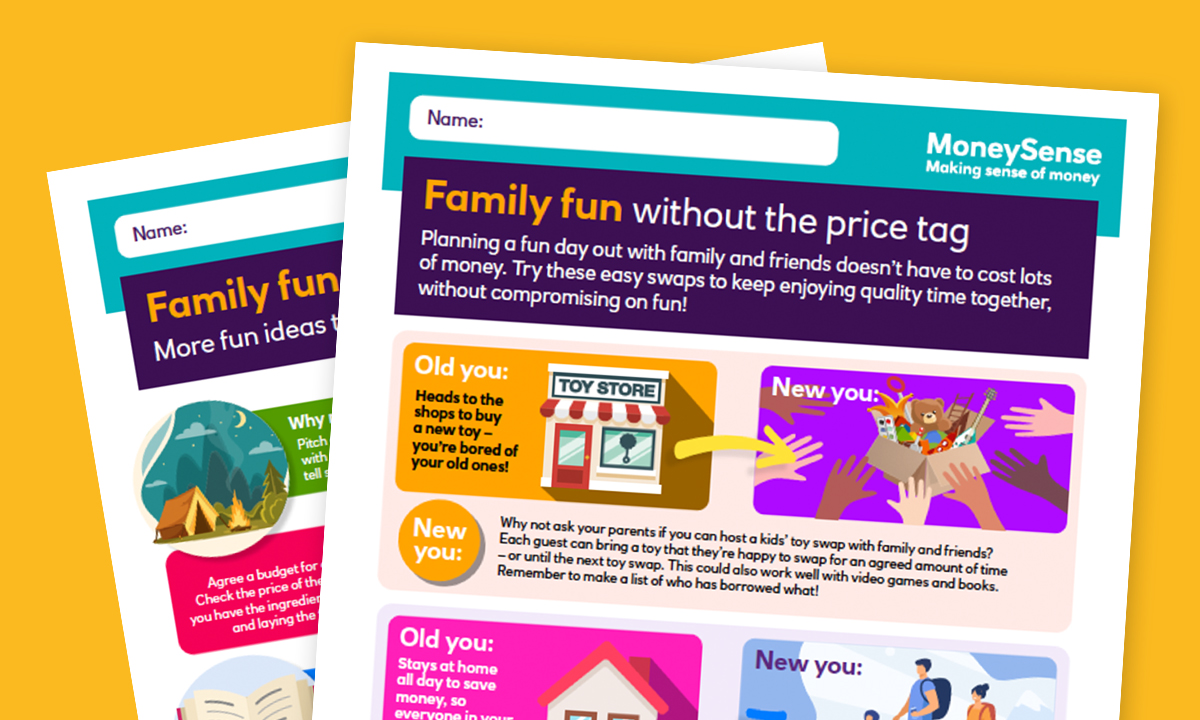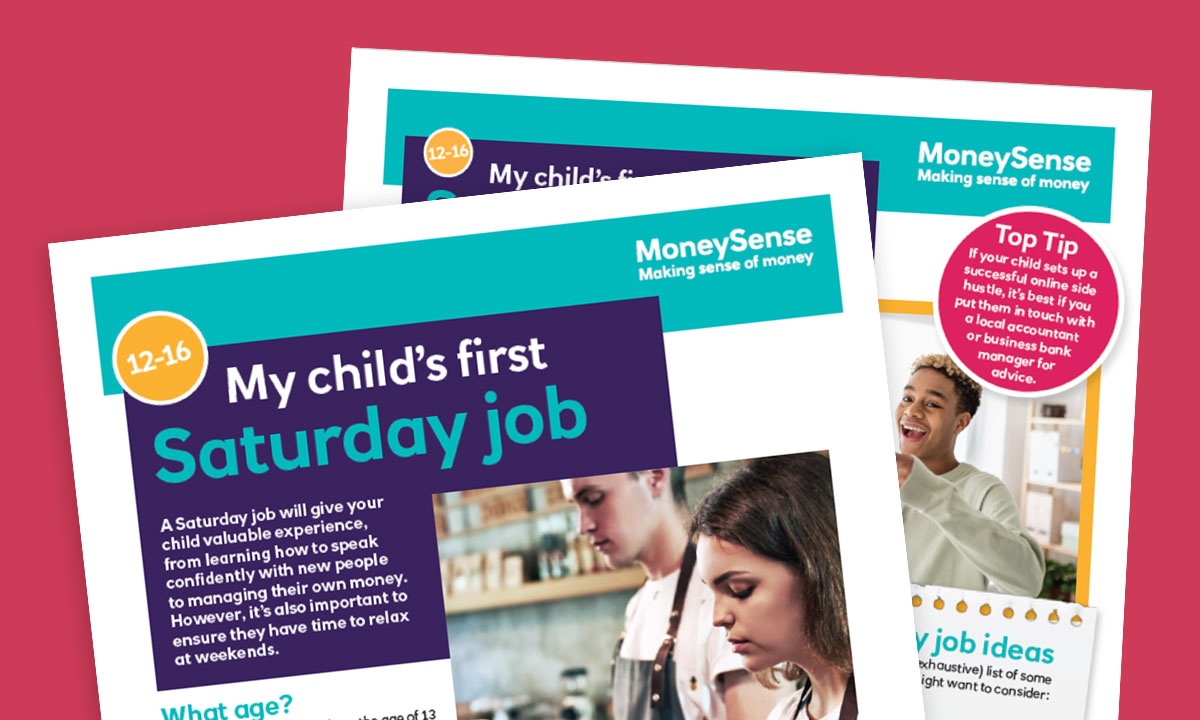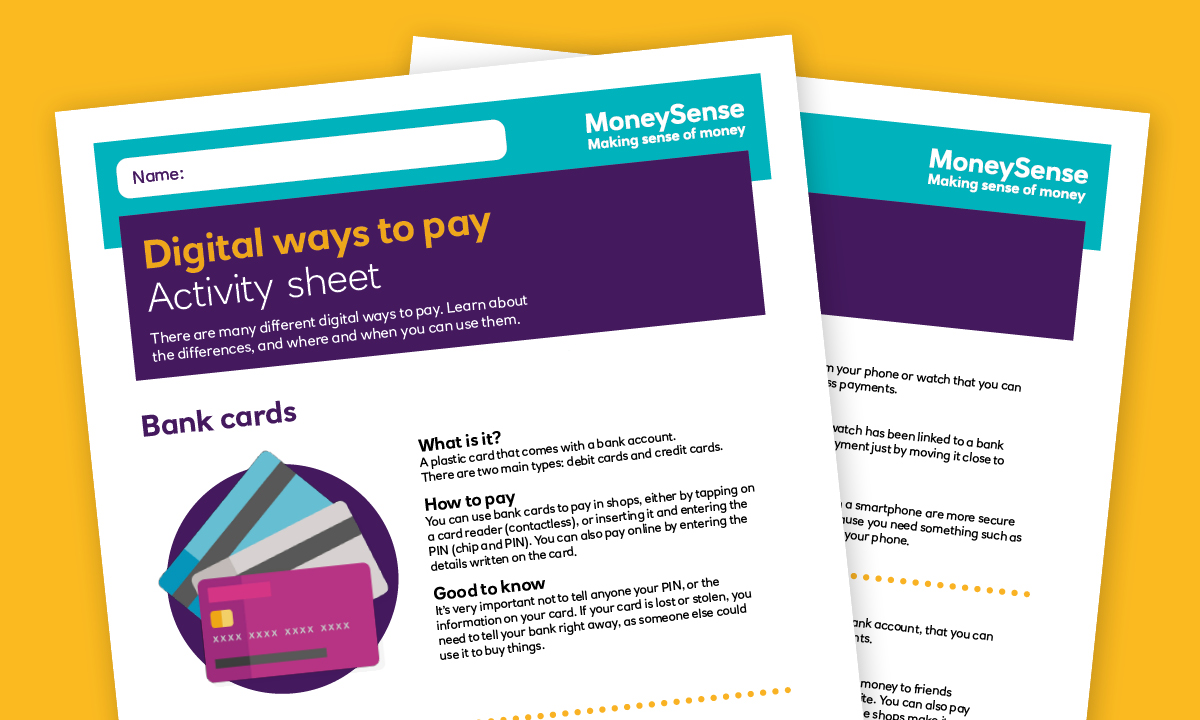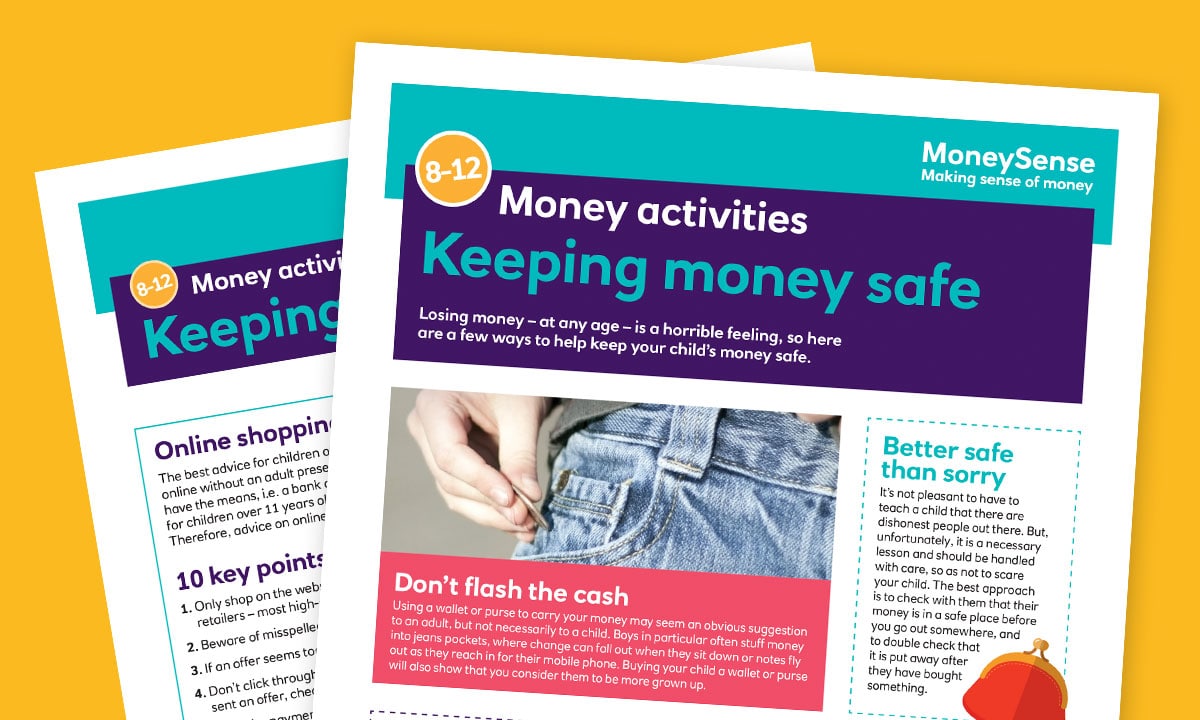10 tips for teaching kids about money
It’ll probably come as no surprise to hear that learning about money is an important step in your child’s development – but it’s a pretty big topic to tackle. So, we've rounded up some essentials to help you and your family start off with your best foot forward.

Having a solid understanding of how to build good financial habits into everyday life can have a significant impact on a child’s future, whatever their age. Read on to discover ten simple steps to help you get going – from covering the basics to setting a positive example, finding financial education resources, and having more open conversations about money.
1. Get back to basics
It’s never too late – or too early – to start teaching children about money. Begin by exploring some of the basics like saving and spending, where money comes from, and the difference between wants and needs, from about the age of five.
It can be useful to reflect on your own money habits and where they came from too, to give you an idea of how you’d like to approach things with your own children. Consider:
- Did you pick up your money habits from your parents or caregivers?
- What positive money habits can you trace back to your childhood learning?
- What negative money habits can you trace back to your childhood?
Learning about money at home can give you and your kids confidence in knowing that they have the skills to manage their finances, both now and in the future.
2. Keep their financial skills growing with them
As your kids grow – both in size and in confidence – you may need to broach a whole new set of money lessons. Doing things like giving older children the freedom to manage their own budget can help to teach two valuable lessons: spend what you can afford, and avoid unplanned expenses. Things like this can help give them a more tangible understanding of the value of money.
When it comes to providing financial education for teens who might have just scored their first weekend job, take time to talk them through their first payslip. These can seem cryptic, so going through things like National Insurance and PAYE together will progress your teen’s financial education and help them ensure they’re treated fairly by their employer.
3. Explore the different ways to pay
Once upon a time cash was king and children only needed to learn their pounds from their pence – a simpler world! Nowadays we’re spoiled with a whole host of different ways to pay for things, which means more things for kids to learn about money and how to use it.
That being said, cash is still a good place to start – then build out to other methods from that. Try our name the digital payments activity sheet to help kids identify card payments, online banking, and in-app purchases, or get comfy and watch our fun cashless payments video together.
4. Make sure they’re scam savvy
The act of scamming another person out of their money is nothing new. But with the invention of the internet, it’s now even easier for fraudsters to take advantage of any missteps we make, and (sadly) kids aren’t immune from being targeted.
Ofcom research found that the majority of 12-17s were confident in their ability to tell the difference between what’s real and fake online, but only 11% correctly selected the parts of a social post that were genuine in an interactive survey question. Helping them to get a jump on things like the dangers of fraud and how to avoid scams online early could help to save them a lot of stress, and money. And it doesn’t have to be dull or scary – there are plenty of engaging ways to learn about money out there, like in our interactive scam busters game. Make sure you and your kids stay up to date with the latest scams knocking about too, as they can be ever-changing!
5. Don’t shy away from cryptocurrency conversations
Cryptocurrencies look like they’re here for the long-haul, so they should form a part of your child’s financial education. Don’t worry though, giving them the crypto 101 doesn’t need to be as complicated as it sounds! We’ve put together this handy explainer video for beginners of all ages to help remove some of the stress of it – who knows, you might even end up having fun along the way! Got an older teen whose interest is piqued? Get them to check out our article.

6. Find learnings in the everyday
When you look around, there are plenty of opportunities for you and your kids to learn valuable money lessons in your day-to-day life. Take mobile phones: with these comes a level of financial responsibility, and the opportunity to explore that. Try asking your child these questions to get them thinking about the impact a mobile phone has on finances:
- How much do phones cost?
- What is a contract and how does it work?
- How do contracts compare with ‘pay as you go’?
- What happens if you use up all your data?
- What happens if you lose your phone?
You can also tackle digital gaming currencies together with the help of our handy article and discover what to look out for when playing games like Roblox, Fortnite, Minecraft, FIFA, and Pokémon Go.
7. Take advantage of financial education resources
With so much information at our fingertips it can be hard to figure out who and what really has our best interests at heart, particularly when it comes to money. Getting an online financial education can be brilliant, but has your child ever engaged with our MoneySense resources at school?
If not, why not suggest them to their teacher? It’s free and easy to sign up, and gives teachers access to lesson plans, activity sheets, videos, and interactive activities – they can even book in for some of our bank employee volunteer led workshops.
8. Empower them to take the next step
At some point, your kids will reach the age when they’re ready to live independently for the very first time. While this is an exciting prospect, they may be feeling daunted by all the new responsibilities that come with this move from childhood to adult life. With the events of the last few years impacting young people the most, it’s more important than ever to empower them with a working understanding of financial topics. Check out our resources on the reality of debt at university, investing, borrowing, and the relationship between money and mental health.
9. Talk about money
Money has historically been a bit of a taboo subject, and while it’s a good idea to approach it with sensitivity, research shows it’s important that we are more open about our finances with one another – and that includes having money conversations with your kids. As a parent, your instinct is probably to shield your child from the financial world, but the reality is they’ll learn about money whether you talk to them about it or not, so it's best to get ahead of the curve.
The Talk Money hub on our site provides practical ways to kickstart the conversation and help you gently introduce your kids to real world money topics like the unequal distribution of wealth and the rising cost of living without sugar-coating the truth.
10. But don’t force it – we all know this can push them in the other direction! (See: eating your greens)
Do try to be open when your kids come to you with questions about money, but don’t force it or compare yourself to others. You and your child know best when it comes to the topics you touch on and those you leave for another time, so follow their lead and try to take your cues from them as much as possible. The main thing is that money is something that they (and you!) feel able to talk about openly together, when needed.
Image credits: iStock
Find out about all the latest MoneySense articles for parents by following us on Facebook
Related activities
Want your teenager to find out more for themselves? Here are some activities to share with them.

 Activities:
Activities: 





